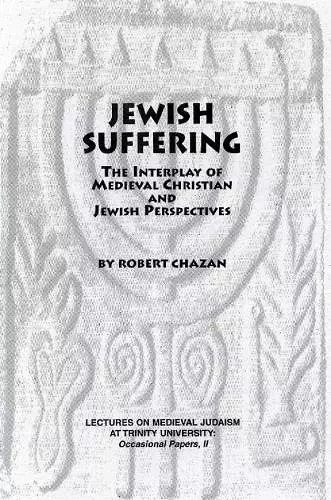Jewish Suffering
The Interplay of Medieval Christian and Jewish Perspectives
Format:Paperback
Publisher:Medieval Institute Publications
Published:1st Jul '98
Currently unavailable, our supplier has not provided us a restock date

The book explores how Jewish authors challenged Christian narratives of divine favor, asserting the enduring promise of redemption for Jews throughout the Middle Ages.
In Jewish Suffering, the author delves into the complex relationship between Jewish communities and the Christian narratives that shaped their historical experience. The book highlights how figures like Rabbi Mordechai ben Joseph of Avignon challenged the prevailing Christian claims of divine favor, asserting that God's promise of redemption for Jews remained intact. Through a detailed examination of medieval texts and historical contexts, the author illustrates the resilience of Jewish identity in the face of adversity and persecution.
The narrative unfolds against the backdrop of the destruction of the Second Temple in 70 C.E., which early Christianity interpreted as a consequence of Jewish rejection of Jesus. This interpretation contributed to a long-standing perception of Jewish inferiority, exacerbated by their continued exile. In response, Jewish authors crafted narratives that reframed their suffering, viewing it through a lens of triumph and martyrdom rather than defeat. Key texts from the period, such as the Mainz Anonymous and the Solomon bar Simson Chronicle, offer insight into how Jewish communities resisted the narrative of degradation and instead celebrated their experiences of suffering as a testament to their faith.
By the mid-thirteenth century, the discourse surrounding Jewish suffering evolved, with Christian efforts to convert Jews often relying on the notion of divine rejection. The book emphasizes how Jewish thinkers, including Nahmanides, countered these claims, reinforcing the idea that their suffering was not a sign of God's disfavor but rather a part of their enduring covenant. Jewish Suffering serves as a crucial exploration of the interplay between faith, identity, and historical narrative in the medieval Jewish experience.
ISBN: 9781580440028
Dimensions: unknown
Weight: 68g
39 pages